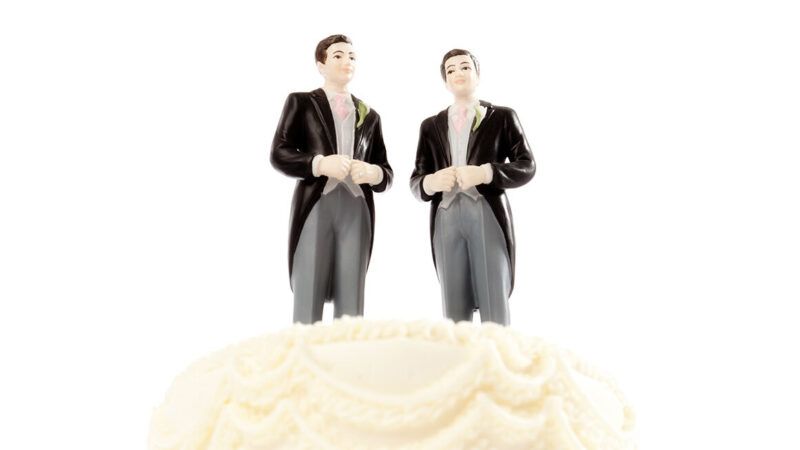Gay Weddings Return to The Supreme Court
Can a web designer be compelled under the First Amendment to host wedding pictures?

The debate over whether businesses can be forced to provide goods and services for gay weddings will return to the Supreme Court in an upcoming case.
In February, the Supreme Court agreed to hear 303 Creative v. Elenis. Lorie Smith owns and runs 303 Creative, a web design firm based in Colorado. Smith planned to design and host sites for weddings, but she has religious objections to same-sex marriage and does not want to be forced to design and host sites for LGBT couples. That puts her at odds with Colorado's Anti-Discrimination Act, which prohibits "places of public accommodation" from discriminating against LGBT customers.
In her petition to the Supreme Court, Smith says she is not refusing to serve LGBT customers. Rather, she "cannot create websites that promote messages contrary to her faith, such as messages that condone violence or promote sexual immorality, abortion, or same-sex marriage."
Historically, the Supreme Court has limited the government's ability to compel a private business to transmit a message it finds objectionable. A book publisher, T-shirt printer, or social media platform generally cannot be forced to print or host messages that support or oppose any particular cause or policy.
Smith argues that the same logic should apply in her case. But the U.S. Court of Appeals for the 10th Circuit ruled that Colorado could legally require her to design and host sites for gay weddings and prohibit her from putting a message on her website stating that her religious beliefs prevent her from supporting gay marriage with her services.
The Supreme Court previously considered Colorado's anti-discrimination law in Masterpiece Cakeshop v. Colorado Civil Rights Commission, a 2018 case involving a Lakewood bakery whose owner, Jack Phillips, refused to bake a wedding cake for a gay couple. In a 7–2 ruling, the Court blocked enforcement of a cease-and-desist order against Phillips. But rather than decide whether a bakery could be compelled to make a cake for a gay wedding, the Court determined that Colorado's law had not been neutrally applied because the Colorado Civil Rights Commission demonstrated "clear and impermissible hostility" to Phillips' religious views.
If that ruling seemed like a dodge, the Court now appears ready to tangle with the underlying issue in 303 Creative v. Elenis: "whether applying a public-accommodation law to compel an artist to speak or stay silent violates the Free Speech Clause of the First Amendment."
Show Comments (240)